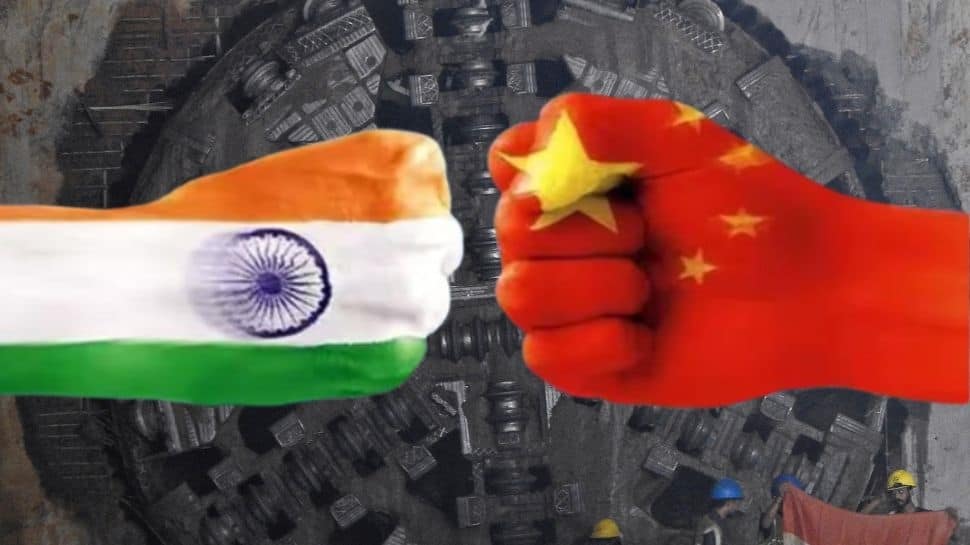In a move that underscores India’s strategic resolve to reduce dependence on China, Germany’s Herrenknecht AG, one of the world’s leading tunnel boring machine (TBM) manufacturers, is expanding its operations in Chennai with a new 12.4-acre manufacturing facility in North Chennai. The expansion comes at a time when several major Indian infrastructure projects — from metro corridors to hydropower tunnels — are facing delays due to China’s obstruction of TBM exports. The new plant, industry reports say, will help India not only meet its growing domestic demand but also secure its supply chain from geopolitical disruptions.
Diplomatic and Economic Pushback
The current tensions trace back to October last year, when Union Commerce Minister Piyush Goyal raised the issue directly with German Economy Minister Robert Habeck. In a candid exchange that later went viral, Goyal said, “Your German company is supplying us tunnel boring machines, which they are making in China… but China is not allowing them to sell it to India. We should stop buying German equipment now.â€
The remarks were a rare public acknowledgment of Beijing’s political interference in trade involving third countries. Herrenknecht, which manufactures TBMs in China for global clients, had been blocked by Chinese customs from exporting equipment bound for Indian infrastructure projects.
China’s Assurance
Interestingly, even as tensions simmer, Chinese Foreign Minister Wang Yi during his recent visit to New Delhi reportedly assured External Affairs Minister S. Jaishankar that Beijing would address India’s concerns over fertilisers, rare earth elements, and tunnel boring machines. But officials in New Delhi remain cautious. “We can’t afford to let strategic infrastructure be held hostage to another country’s political agenda,†said a senior government source familiar with the developments.
Projects Delayed, Patience Tested
The delay hit several critical infrastructure works in India — including metro expansions and river-linking tunnels — all reliant on timely TBM supplies. The situation escalated to the point where New Delhi lodged formal protests with both Berlin and Beijing, urging them to resolve the bottleneck.
Herrenknecht’s management, too, confirmed the unusual customs holdup. German Ambassador to India Dr. Philipp Ackermann later acknowledged the issue, saying, “It is clear for political reasons that the Chinese would not really let them out.â€
He added that the experience had prompted Herrenknecht to diversify its operations, calling the Chennai expansion a “good example of not putting all eggs in one basket.â€
India’s ‘German Checkmate’
For India, the episode served as a wake-up call. With China weaponizing trade dependencies, especially since the 2020 Galwan Valley clashes, New Delhi has sought to localize critical manufacturing and deepen industrial ties with trusted partners like Germany, Japan, and France. Herrenknecht’s decision to manufacture TBMs directly in India rather than relying on exports from China is being viewed as a strategic win — both economically and diplomatically. The move will allow faster project execution, local job creation, and technology transfer while reducing the influence of Chinese supply chains on India’s infrastructure push.
Chennai As India’s Tunnel Tech Hub
Herrenknecht was the first global TBM maker to set up an assembly facility in India in 2007, also in Chennai. With the new plant, the German major aims to fully manufacture and assemble its machines domestically, strengthening India’s engineering base and reducing project costs. The timing couldn’t be more critical — India has dozens of major tunneling projects in the pipeline, including metro systems, high-speed rail corridors, and river-interlinking schemes. The domestic demand for TBMs is expected to soar over the next five years, making local production both an economic and strategic necessity.
A Broader Message
Herrenknecht’s Chennai expansion sends a clear signal: India’s infrastructure ambitions will not be stalled by geopolitics. As New Delhi deepens industrial cooperation with Germany, it is also laying the foundation for a self-reliant, resilient manufacturing ecosystem that stands firm against external pressure. What began as a trade dispute has evolved into a strategic rebalancing — one where India, backed by its partners, is quietly crafting a German checkmate to China’s obstruction playbook.




